Cats are fun and curious creatures who usually have some pretty bizarre behaviors. Many cat owners report seeing their cats interact with and lick emery boards.
Cats seem drawn to the abrasive surface and spend hours playing and swatting at the emery board.
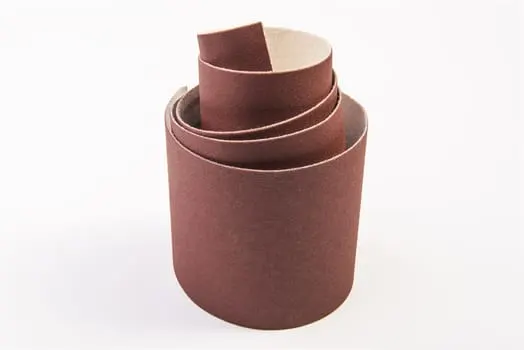 A cat may be attracted to an emery board because it has a mineral deficiency.
A cat may be attracted to an emery board because it has a mineral deficiency.
Cats may also like the texture because the rough surface can mimic a rough cat’s tongue and grooming.
Or, cats may view the emery board as a toy and are entertained by its shape, size, and smell.
Luckily, emery boards are not toxic for cats, and little harm will come to a cat playing with an emery board. The only real danger is if your cat accidentally chews or ingests the emery board.
If your cat accidentally chews and eats a part of the emery board, observe your cat to ensure the board successfully passes.
Is My Cat Getting Enough Nutrients?
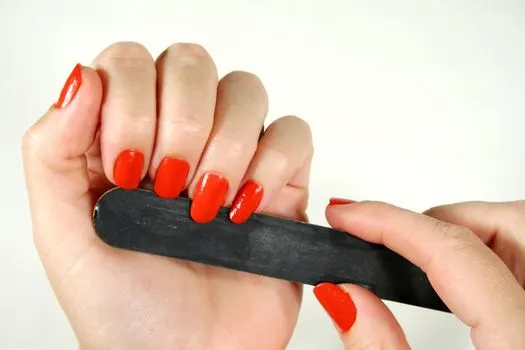 Although it may seem unusual, a likely reason why your cat is attracted to your emery board is that it is not getting enough minerals and nutrients in its diet.
Although it may seem unusual, a likely reason why your cat is attracted to your emery board is that it is not getting enough minerals and nutrients in its diet.
When a cat lacks the proper nutrients, it will find ways to supplement its diet. Gnawing on a nail file may help give your cat calcium, magnesium, iron, or zinc.
While these minerals don’t seem tasty, a cat lacking certain minerals will crave them.
How Can I Give My Cat the Necessary Nutrients?
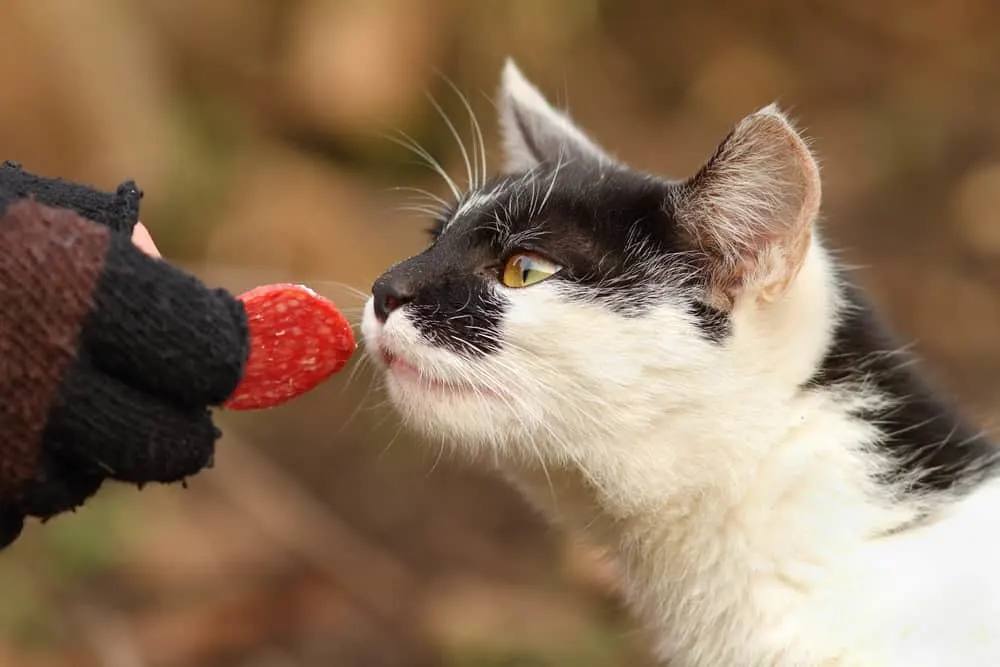 Cats require a well-balanced meal to stay happy and healthy. Not only does a healthy diet encourage muscle growth and energy, but it also helps to keep your cat’s systems working well, maintaining optimum health.
Cats require a well-balanced meal to stay happy and healthy. Not only does a healthy diet encourage muscle growth and energy, but it also helps to keep your cat’s systems working well, maintaining optimum health.
A cat not getting the proper nutrients and minerals is subject to disease and injury.
To ensure your cat receives the right amount of vitamins and nutrients, confirm your cat is getting a well-balanced diet with plenty of high-quality cat food.
Kibble or canned food can suffice, and a balanced blend of the two should be offered daily. In the wild, cats are carnivores, and domestic cats are no different.
Occasional offerings of baked chicken, turkey, or even eggs are a great way to give your cat added protein and necessary nutrients.
Does My Cat Like the Texture of an Emery Board?
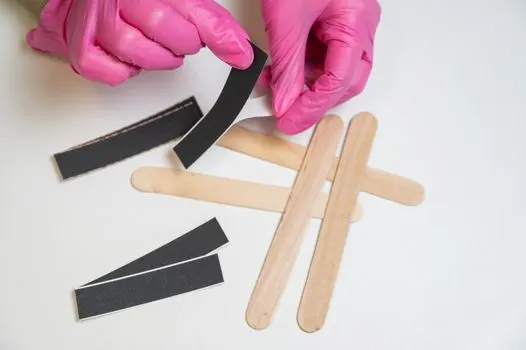 Emery boards are rough and caustic and designed to grind down hard surfaces. It turns out this texture is precisely what cats love.
Emery boards are rough and caustic and designed to grind down hard surfaces. It turns out this texture is precisely what cats love.
The rough exterior of an emery board may mimic the feel of a cat’s tongue. Rubbing its face against the sandpaper may feel like another cat licking it.
This feeling could be soothing for your cat. Licking the emery board could give your cat the same sensation as grooming.
Does My Cat Like the Sound?
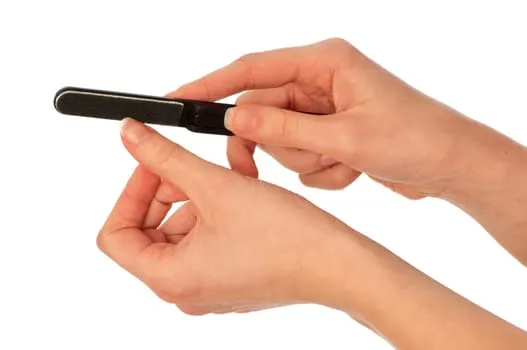 While some sounds may seem scary to a cat, other sounds are enjoyable. When a person uses a nail file and rubs their fingers against an emery board, it makes a particular sound.
While some sounds may seem scary to a cat, other sounds are enjoyable. When a person uses a nail file and rubs their fingers against an emery board, it makes a particular sound.
This particular sound can entice cats, quickly catching their attention.
There is also the chance that the sound of filing your nails mimics the sound of a scratching post. Cats will use a scratching post to keep their nails short and mark their territory.
Mimicking this behavior is probably intriguing for your cat to watch as a pet owner.
Is My Cat Claiming My Emery Board?
Cats often claim their territory by depositing their scent in an area or object. When a cat rubs against your legs, it marks you as its own.
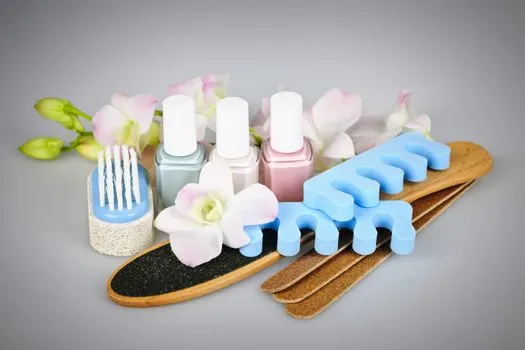 Cats will also rub their face on toys that they want to claim. When you see your cat rubbing against an emery board, there is a good chance it is simply trying to claim the board and mark its territory.
Cats will also rub their face on toys that they want to claim. When you see your cat rubbing against an emery board, there is a good chance it is simply trying to claim the board and mark its territory.
Could An Emery Board Be A Toy?
Lastly, but certainly not least, there is a strong chance that your cat likes the emery board because it thinks it is a toy.
Cats, by nature, like to inspect different objects, and an emery board is no different. The emery board may look exceptionally attractive because it is small, portable, tasty, and makes fun sounds.
The emery board is also easy for your cat to pick up and move to the toy pile to add to the collection.
Why Does My Cat Like Nail Dust?
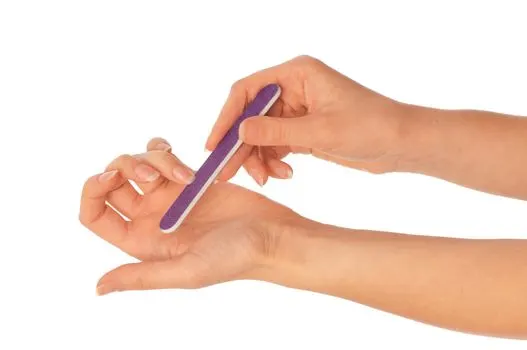 A cat that continually chews and plays with an emery board you have used may suffer from a mineral deficiency.
A cat that continually chews and plays with an emery board you have used may suffer from a mineral deficiency.
While potentially tasty, the nail dust you produce could help provide the needed minerals and nutrients your cat is seeking.
Cats that paw, chew, and lick emery boards may be compensating for an imbalance from an inadequate daily diet.
Nail dust collected on the emery board contains several valuable minerals like iron, calcium, zinc, magnesium, and phosphorus.
These minerals are essential building blocks to create strong bones and muscles and help keep your cat’s significant systems healthy and in check.
Are Emery Boards Toxic To Cats?
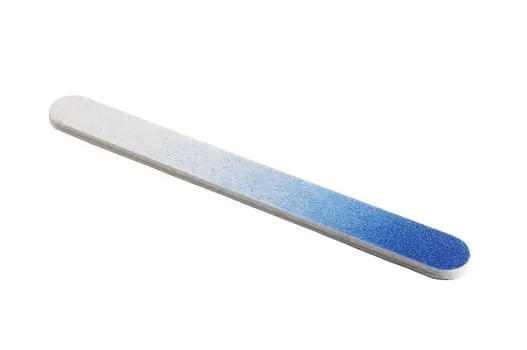 If your cat likes to chew on an emery board, you may be concerned with your cat inadvertently ingesting potentially harmful substances.
If your cat likes to chew on an emery board, you may be concerned with your cat inadvertently ingesting potentially harmful substances.
Luckily, commercially produced emery boards are not toxic for cats. The paper and grit used to create an emery board are usually made from natural substances and are in small enough quantities to be of little concern.
On the rare occasion that your cat eats an emery board, keep a close eye on your cat. In most cases, eating an emery board will cause your cat to vomit.
Of course, there is always the rare chance that your cat could have an allergic reaction. If your cat does not vomit the emery board, keep a close eye on your cat’s stool.
The undigested board could form a blockage in the intestines, potentially harmful and fatal if not treated.
Will Chewing on Emery Boards Damage My Cat’s Teeth?
Your cats are natural-born predators and have extremely sharp and hard teeth. Even if your cat spends hours chewing on an emery board, there is very little chance your cat’s teeth will become damaged.
Although an emery board has a rough texture and is covered with fine-grit sandpaper, your cat’s sharp and hard teeth are no match for the emery board. Chewing on an emery board will not harm your cat.
Can My Cat Develop Pica?
Pica is a potentially dangerous disease that is commonly found in cats. Symptoms of this disease involve chewing and possibly ingesting foreign objects.
A cat with pica may continuously chew on fabric, toys, and clothing or even try to eat litter or dirt. While it is possible your cat could develop pica from chewing on a nail file, chances of this are unlikely.
Most cats will show signs of having pica from an early age. Luckily, several cats will grow out of pica by reaching adulthood.
Although the cause of pica is unknown, most scientists believe a cat cannot catch pica. Your cat will develop pica due to boredom, genetics, or a nutritional deficiency.
Can You Use a Nail File For Your Cat?
 If regular nail grooming and maintenance is a struggle, you may be tempted to use a nail file on your cat instead of traditional nail clippers.
If regular nail grooming and maintenance is a struggle, you may be tempted to use a nail file on your cat instead of traditional nail clippers.
While a nail file will certainly work on filing the nail, it would most likely lead to frustration for you and your cat. Most cats don’t like touching their claws and paws, so prolonged filing will probably upset your cat.
When a groomer uses a nail file, they have a different setup and tool. Most groomers have a nail file with a grinder attached to the end.
To use the file, groomers will often sedate your cat to keep it calm and comfortable through the grooming process.
Although grooming and clipping the nails is a necessary part of overall health for your cat, you want to reduce your cat’s stress and anxiety when possible.
Related Questions
Do they make cat-specific nail files?
Emery boards are common practice for humans to use but may not be the best option for pets like cats. Luckily, it is possible to find nail files made especially for cats.
These nail files are available in online markets or some specialty pet stores. It may even be possible to purchase cat-specific nail files from your groomer or veterinarian.
Do nail grinders work for cats?
A popular option to trim nails efficiently is a nail grinder. These tools gently grind the nails quickly, leaving a shorter, safer nail tip.
Like all nail trimming tools, allow your cat to become accustomed to the nail grinder. Some cats may initially be frightened by the motor’s sound and grinding sensation.
Related Guides
- Why Do Cats Like Soft Blankets?
- Why Do Cats Like to Cuddle in the Morning?
- Why Do Cats Lick Concrete?
Our team is composed of pet care professionals, veterinarians, and pet owners. To date, we’ve conducted thousands of hours of research to publish the most accurate pet information.
Most of the writers on our site are vets with 10+ years of clinical experience, ranging from small practice, to equine practice, academia, and surgery. Our goal is to help every pet owner get the information they seek about their dear companions.

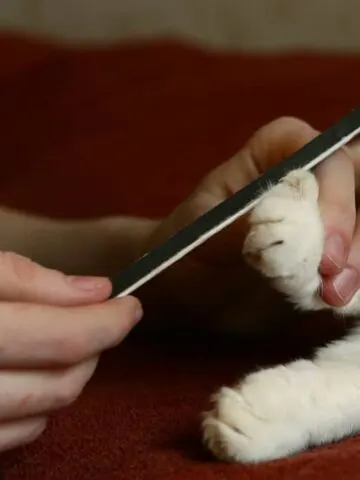

Leave a comment
You must be logged in to post a comment.